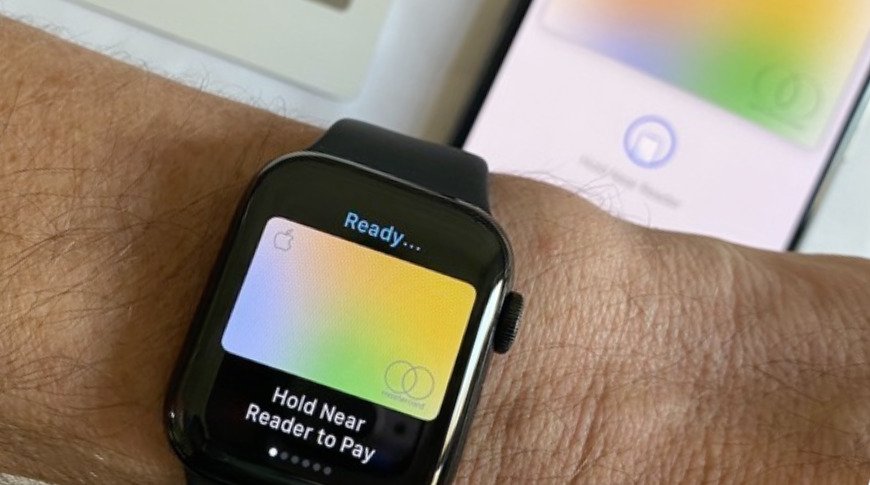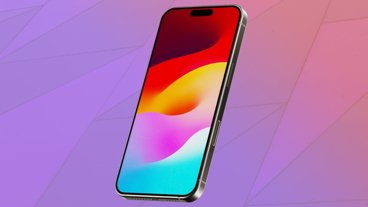Apple Pay's introduction into the payments market has led to multiple "expressions of concern," the EU Competition Commissioner Margrethe Vestager has revealed, with comments about Apple's mobile payments service potentially leading the European Commission to take a closer look at how competition in the market is affected by its presence.
Apple Pay has become a massive business for Apple as part of its Services arm, with it processing over 3 billion transactions in the September quarter, more than mainstay payment system PayPal. The massive growth of the platform has, as usual, drawn regulatory attention, with EU antitrust chief Vestager indicating complaints about it have started to arrive at her door.
"We've been asking quite a number of questions because we get many concerns when it comes to Apple Pay for pure competition reasons," Vestager revealed at a news briefing at Web Summit, reports Reuters. "People see it becomes increasingly difficult to compete in the market for easy payments."
Vestager has previously advised of the possibility of an examination of Apple Pay from an antitrust viewpoint, telling Reuters last year there is a possibility of an investigation into the platform if there were formal complaints.
According to one EU document, Vestager has also reportedly sought details from online retailers about their dealings with Apple Pay, including if they were told to use it instead of competitors.
Apple has argued that limiting access to the NFC chip provides tighter security, especially when handling sensitive banking data. They also argue that this is one of the reasons consumers choose Apple Pay in the first place. Banks and rival payment services have claimed the same restrictions make alternative payment services less attractive due to using other methods, such as barcodes and QR codes.
Vestager previously pointed out that other companies, such as Google and Samsung, have not triggered a probe. Smartphones running Android operating systems generally allow all payment apps access to the device's NFC chip.
Apple has taken efforts to start opening up NFC to third parties, such as for Germany's passport and ID card plans, and for the UK's Brexit app to function properly on iPhone.
In December 2018, Apple had settled a complaint with a Swiss payment company, TWINT, to avoid such a probe. Australian banks had also taken issue with Apple Pay for similar reasons, but ultimately resulted in them backing down and adopting Apple Pay support.
Apple is still in the midst of another anti-trust probe regarding their self-preferential practices, centered largely around their long-running spat with Spotify.
 Malcolm Owen
Malcolm Owen






-m.jpg)






 Charles Martin
Charles Martin
 Marko Zivkovic
Marko Zivkovic


 William Gallagher
William Gallagher

 Christine McKee
Christine McKee





-m.jpg)




38 Comments
The difference between Apple's success and other tech companies, like Microsoft, is for the most part Apple has succeeded because people actually want to buy their products. Microsoft's monopolistic practices had to do with Microsoft forcing PC vendors to license their operating system. Apple is vertically integrated, which is unique in the tech world. Because of that, ignorant competition commissioners just don't understand how to deal with this type of company. Tesla is also vertically integrated and I can't wait for the first complaint from the EU (backed by auto manufacturers) that Tesla should be broken up.
These kinds of positions are quite disgusting in their anti-capitalist positions.
Companies that develop products or services in a commercial environment have the right (and responsibility) to decide to make such products or services as closed or as open as they wish. Not only for their success as an commercial entity (and as a return on their enormous development, support, and marketing investments), but, in cases such as this, for concerns of user security. A company's decisions in all ways impact go-to-market risks - and inform the considerations of the consumer whether they want to purchase. In this case, too open and you invite potential security risk and lack of cohesive user experience - too closed, and you run the risk of alienating consumers and making it too difficult to use. If Apple has shown anything, it's that they get the blend of open and closed quite right far more often than they get it wrong. Its success is the penultimate marker for this. If one does not like Apple's (low) walled-garden approach, there are a multitude of Android alternatives one can move to. That's competition. Apple and everyone else out there have to continually compete, which seems to be forgotten by some. Competing means, among other things, offering differentiated features, sometimes exclusive, sometimes open, to make your mark. The consumers will decide if those offerings are of value or not. If too many people feel Apple Pay's approach is too limited, they won't use it. Or, if significant enough of a concern, they'll leave the platform.
Again with the EU and their garbage.